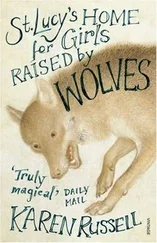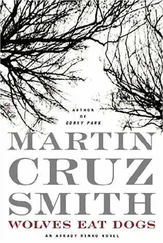Iain Campbell - Wolves in Armour
Здесь есть возможность читать онлайн «Iain Campbell - Wolves in Armour» весь текст электронной книги совершенно бесплатно (целиком полную версию без сокращений). В некоторых случаях можно слушать аудио, скачать через торрент в формате fb2 и присутствует краткое содержание. Жанр: Исторические приключения, на английском языке. Описание произведения, (предисловие) а так же отзывы посетителей доступны на портале библиотеки ЛибКат.
- Название:Wolves in Armour
- Автор:
- Жанр:
- Год:неизвестен
- ISBN:нет данных
- Рейтинг книги:4 / 5. Голосов: 1
-
Избранное:Добавить в избранное
- Отзывы:
-
Ваша оценка:
- 80
- 1
- 2
- 3
- 4
- 5
Wolves in Armour: краткое содержание, описание и аннотация
Предлагаем к чтению аннотацию, описание, краткое содержание или предисловие (зависит от того, что написал сам автор книги «Wolves in Armour»). Если вы не нашли необходимую информацию о книге — напишите в комментариях, мы постараемся отыскать её.
Wolves in Armour — читать онлайн бесплатно полную книгу (весь текст) целиком
Ниже представлен текст книги, разбитый по страницам. Система сохранения места последней прочитанной страницы, позволяет с удобством читать онлайн бесплатно книгу «Wolves in Armour», без необходимости каждый раз заново искать на чём Вы остановились. Поставьте закладку, и сможете в любой момент перейти на страницу, на которой закончили чтение.
Интервал:
Закладка:
Alan knelt before William. William asked, “Did you do homage to de Mandeville when you joined his forces?”
Alan smiled and replied, “No, he was too busy to see me, then or after.” William nodded and, led by Aethelbald, Alan recited the oath of homage and fealty. A man could swear homage to only one man, but could swear fealty to several for different fiefs, although that had the potential to cause difficulties.
“In the name of the Lord, I, Alan de Gauville do acknowledge to William, king of England, the fealty and homage for the manors of Thorrington, Bradfield, Ramsey, Dovercourt, Beaumont, Great Oakley and Great Bromley. I have made to my liege lord William, king of England, acknowledgment and homage as I ought to do. Therefore, let all present and to come know that I, the said Alan de Gauville, acknowledge verily to thee my lord William, by the grace of God king of England, and to thy successors, that I hold and ought to hold as a fief the said manors and I swear upon these four gospels of God that I will always be a faithful vassal to thee and to thy successors in all things in which a vassal is required to be faithful to his lord. I will defend thee, my lord, and all thy successors against all malefactors and invaders, at my request and that of my successors at my own cost. And if I or my sons or their successors do not observe to thee or to thy successors each and all the things declared above, and should come against these things, we wish that all the aforesaid fiefs should by that very fact be handed over to thee and to thy successors. I, therefore, I the aforesaid lord Alan declare that I will be good and faithful lord concerning all those things described above.”
Alan, kneeling before William placed his hands forward in a praying position, and William took his hands between his own, accepting the oath, before buffeting him on the shoulder.
“I acknowledge you as my man and shall care for your interests as I care for my own,” replied William, sealing the bargain.
The scribe Aethelbald held the Charter out to Alan for him to stand and collect. “That will be one gold mark,” said Aethelbald.
“The Lord giveth and the Lord taketh away,” replied Alan with a smile.
With a chuckle William waved a hand at Aethelbald and said, “Don’t bother! You can forgo your own fee in this instance!”
CHAPTER SIX
THORRINGTON, ESSEX. JANUARY 1067
There was light snow on the ground as Alan rode into the village of Thorrington in the Hundred of Tendring in northern Essex, with four Norman men-at-arms at his back. They were the swordsmen Hugh and Baldwin, and Roger and Warren the archers. An English gebur with a light donkey cart hired in London, which carried their goods, trailed slightly behind. They had ridden the 64 miles from London to Colchester over two days, resting at Chelmsford. The road had passed through the immensity of the Waltham Forest, in which the villages of Barking, South Weald, Ingatestone and Margaretting were tiny and trivial intrusions by man into the world of nature- insignificant pockets of cleared land in an immense wilderness.
The great expanse of woodland through which the rutted and muddy dirt track that was the main road had wandered had been relatively open, with the upper storey of branches bare for the winter. Massive oak and elm trees, and the white trunks of smaller silver birch, stretched for mile after mile. Because of the dense shade cast by the trees in summer the forest was virtually clear of bushes and undergrowth, with only the trunks of the trees and the occasional fallen giant limiting visibility to 100 paces or so.
Occasionally fallow deer or muntjac had been seen either flitting through the trees or foraging for nuts lying on the ground. Squirrels and hares darted about and game birds occasionally burst into flight as the riders approached. Overhead an occasional hawk had been seen circling looking for prey.
Travellers had been few and far between. Alan’s party had overtaken a few groups on foot or slow-moving wagons drawn by oxen, the oxen occasionally being whipped by their handlers to keep them moving. In the forest most travellers moved in groups of usually of a dozen or more for safety.
It was not until they reached the more open country and arrived at the River Can at Chelmsford, where the road emerged from the great forest, that the hand of man could be seen with any regularity. Even then the land was mainly forest, woodland and waste between Witham and Braxted before the road passed into Lexden Hundred and proceeded through Feering, Stanway and Lexden before it eventually arrived at Colchester.
The traffic on the road had increased after Chelmsford, with travellers being there prepared to journey alone. Roughly dressed peasants and the poorer townsfolk and villagers had walked on foot. Merchants travelled on wagons with their goods. Hawkers walked on their way from village to village either with their goods on their backs, or those selling heavier or more bulky items using a small cart which they either pulled themselves or used a donkey or mule. Only very occasionally had the more wealthy been seen on horseback, and then usually with a handful of retainers with them. After leaving the forest the villages had been five to ten miles apart, with the cultivated land encompassing perhaps one mile on each side of the village.
They had stayed overnight at an inn in Colchester, before the next morning, the third of their journey, leaving the town at daybreak. They crossed the wooden bridge over the River Colne after paying the pontage fee and rode the six miles to Thorrington in a little over an hour, passing through the villages of Wivenhoe and Alresford on the way.
On riding through each village and town since leaving London they had felt the hostile eyes of the local population on them. The few workers out and about in the fields near Thorrington stopped their winter work of gathering wood or repairing fences and stared at the strangers as they rode past, although Alan presumed that in such an isolated area they would have done so with any passers-by.
It was Tuesday the 16th of January and a bitterly cold day. The frozen ground crunched at each step taken, and the breath of man and beast hung in the still air before them. The men sat slumped on their saddles, wrapped tightly in their thick woollen cloaks.
Despite the feeling of hostility all around them, Alan had insisted that they ride without armour. He was determined that if he was going to live in this land he was not going to live in fear of an arrow in the back. However, all five had kept their swords handy and loose in their scabbards.
Alan noted that the village of Thorrington was arranged around the usual village green, with a tavern and a small wooden church with the tithe-barn alongside. There were probably thirty cottages facing the dirt track that ran around the village green, nearly all with a small vegetable garden at the rear and many with a pig-pen or chicken coop, and often both. There was a large barn and a granary. Snow sat heavily on thatched roofs and here and there it had been blown by the wind into drifts several feet deep on the ground. Smoke rose from the stone chimney of the smithy and the regular banging of metal on metal could be heard. A stream, the beginnings of Alresford Creek, ran through the village, with a little wooden bridge over it. Just downstream of the village was the mill, its water wheel turning lazily. At the far side of the village was the manor house fortified in the usual Saxon style with a wooden palisade surrounding the Hall and its outbuildings at a distance of about twenty paces.
Beyond the village, about half a mile away near the tidal headwaters of Barfleet Creek, was the salt-house that serviced the salt pans on the flat tidal land next to Alresford Creek, Barfleet Creek and, further away, the Colne estuary near the mouth of Alresford Creek.
Читать дальшеИнтервал:
Закладка:
Похожие книги на «Wolves in Armour»
Представляем Вашему вниманию похожие книги на «Wolves in Armour» списком для выбора. Мы отобрали схожую по названию и смыслу литературу в надежде предоставить читателям больше вариантов отыскать новые, интересные, ещё непрочитанные произведения.
Обсуждение, отзывы о книге «Wolves in Armour» и просто собственные мнения читателей. Оставьте ваши комментарии, напишите, что Вы думаете о произведении, его смысле или главных героях. Укажите что конкретно понравилось, а что нет, и почему Вы так считаете.












